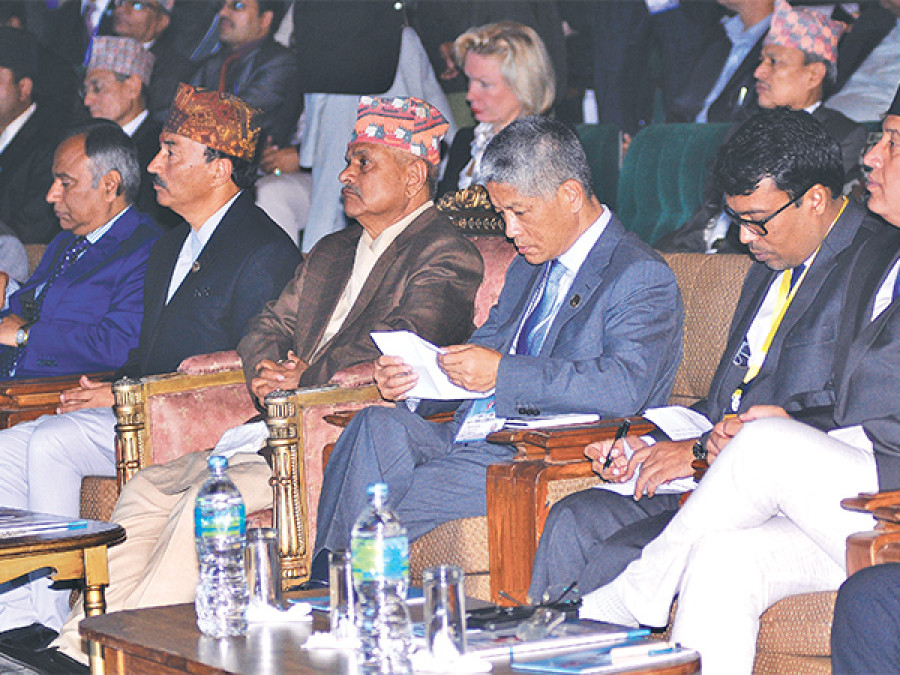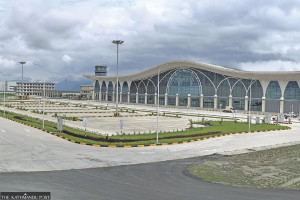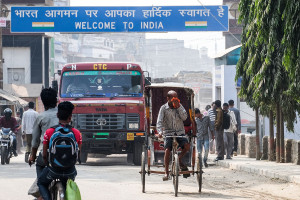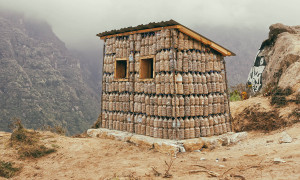Money
NRN investments total Rs29.85b in 9 districts
Non-resident Nepalis (NRNs) have made investments totalling Rs29.85 billion in nine districts in the country, a report prepared by the Society of Economic Journalists -Nepal (Sejon) has revealed.
Sanjeev Giri
Non-resident Nepalis (NRNs) have made investments totalling Rs29.85 billion in nine districts in the country, a report prepared by the Society of Economic Journalists -Nepal (Sejon) has revealed.
According to the report which was released on the sidelines of the seventh NRNA International General Assembly and Global Conference, Sejon made a study of NRN investments in Kathmandu, Lalitpur, Bhaktapur, Baglung, Makwanpur, Kaski, Gorkha, Chitwan and Siraha as of 2014.
Addressing the the unveiling ceremony, Non-Resident Nepali Association (NRNA) President Shesh Ghale said, “Despite having made significant investments in Nepal, we had not been able to provide the actual figure to the people,” Ghale said. “Following the conclusion of this study, we can present evidence to the people and justify the investments made.”
According to Sejon, the field study conducted in nine selected districts identified 67 businesses and industries with NRN investments. The report stated that the service sector was the biggest attraction for NRNs to invest in followed by energy-based industries and manufacturing.
Of the 67 enterprises in which NRNs have a stake, 49 are related to the service sector, eight are energy-based enterprises, seven are in the manufacturing sector, and three are engaged in non-profit making activities, according to the report. These enterprise provide jobs to 8,276 persons in nine districts, with one-third of the employees being women.
The report shows that the Kathmandu valley has received Rs23.15 billion in NRN investments, or 78 percent of the total capital outlay. Baglung came second with Rs2.97 billion (10 percent) and Makwanpur stood third with Rs1.2 billion.
The service sector attracted the largest share of NRN investments, or 59 percent of the total. The energy sector received 25 percent of the NRN investments while the manufacturing sector accounted for 16 percent, and non-profit activities received 1 percent of the total investments.
The report has identified poor law and order in the country as the major challenge for businesses run by NRNs, followed by unavailability of energy and inconsistent government policies.
“Among the businesses and industries surveyed, 42 percent named poor law and order as the major challenge followed by lack of adequate electricity (30 percent), and inconsistent government policies (22 percent),” the report said.
Politicization of trade unions remained another major challenge for NRN investments in Nepal with 52 percent of the respondents saying that dealing with politically affiliated unions were a difficult task.
Likewise, 67 percent of the businesses and industries said that they had received no support from the state, while 32 percent said the support they had received was limited. For 58 percent of the respondents, expansion of their businesses remained an issue due to rigid labour laws.
The Sejon report has asked that the major concerns obstructing potential NRN investments in Nepal be addressed.
It has recommended that concrete steps be taken to improve law and order, ensure basic industrial infrastructure, create additional mechanisms to ensure that the enterprises established with NRN investment receive necessary support from the government, curtail political activities of trade unions and start a fresh initiative to reform labour laws to allow enterprises to adjust the size of their workforce as per market demand and ensure security for labourers.
The NRNA, established as a non-profit making social organisation in 2003 with the motto “For Nepali by Nepali”, aims to unite Nepalis residing abroad, promote and safeguard their interests both in and outside Nepal, and mobilise their contributions in the interest of Nepal.




 17.12°C Kathmandu
17.12°C Kathmandu















